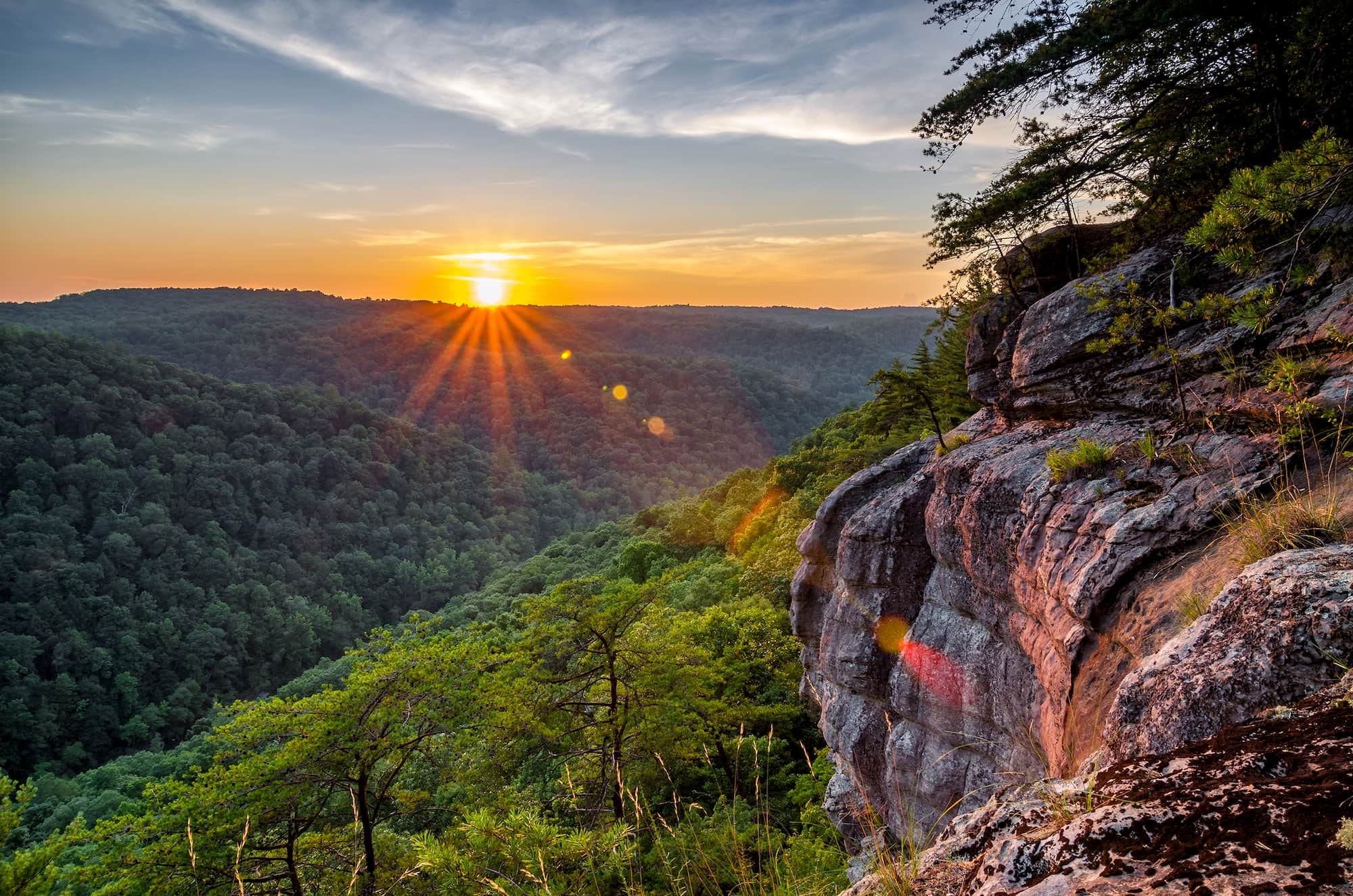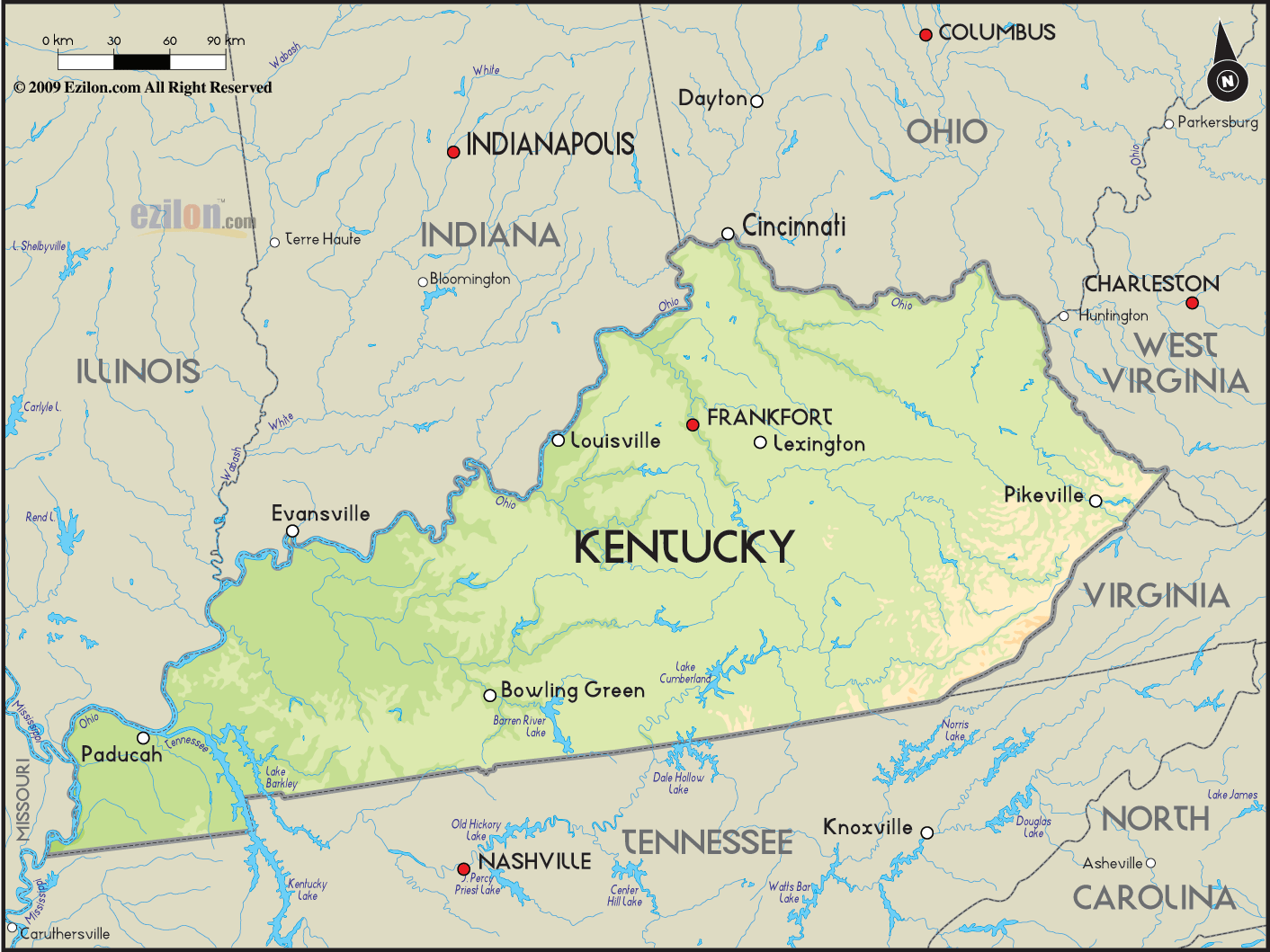Kentucky Ayahuasca Death - Unpacking The Story
A profound and unsettling event has cast a long shadow over discussions surrounding plant medicines and spiritual practices in Kentucky. A death, initially connected to an ayahuasca ceremony, has brought a sharp focus onto the delicate balance between spiritual exploration and safety. This particular situation, you know, has sparked significant conversation among those who follow these kinds of healing paths and also, too, among those who have concerns about them. It really just makes people wonder about what goes on at these places.
The incident has, in a way, prompted a closer look at the places offering these experiences, especially in areas where they might operate outside traditional oversight. It's almost as if the light of public attention has been turned up, showing the different aspects of these practices, from the deeply personal spiritual journeys people seek to the very real risks that can, sadly, emerge. There's a lot to consider, naturally, when something so serious happens.
This situation, which involved the passing of a participant, has, as a matter of fact, raised important questions about the preparations, the rituals themselves, and the care provided at such gatherings. It highlights the need for careful consideration for anyone thinking about participating in these kinds of ceremonies, particularly when they involve potent substances and practices that are not always widely understood or regulated. We really need to look at what occurred.
- Keene Water Shoes
- Zoey And Will Klein
- John Legend Napa Concert
- Leo Tattoo Design
- Olympic Alternate Meaning
Table of Contents
- Steve Hupp - A Life Connected to Ayahuasca
- What Really Happened in the Kentucky Ayahuasca Death?
- The Plant Medicine Ayahuasca - What Is It?
- Are Kentucky Ayahuasca Gatherings Safe?
- The Legal Standing of Ayahuasca Churches and the Kentucky Ayahuasca Death
- Public Perception and the Kentucky Ayahuasca Death Story
- Personal Accounts and the Kentucky Ayahuasca Death Context
- Looking Ahead After the Kentucky Ayahuasca Death
Steve Hupp - A Life Connected to Ayahuasca
Steve Hupp, a person deeply involved in the world of plant medicine, played a notable part in an online community, offering his thoughts and contributing positively. He was, you know, a shaman who established AyaQuest, a place that provided ayahuasca retreat ceremonies for people looking for healing from deep emotional and physical struggles. His work and his passing have, in some respects, drawn a lot of attention to the practices he championed.
Many people knew Steve Hupp through his work at AyaQuest, which was located in eastern Kentucky, just a little way from Berea. He was, apparently, quite a popular figure, and his approach to spiritual counseling, often using the plant medicine ayahuasca, gained a following. The way he ran things was, like, focused on private and group spiritual guidance, which is a bit different from how most churches operate, as they didn't have regular Sunday morning services.
Steve Hupp's connection to the public eye grew when a television show called "Kentucky Ayahuasca" aired on the Viceland network. This show, which debuted on November 28th, explored the way a shamanic healer, based in Campbellsville, administered a substance that often sparks discussion. It followed Steve Hupp, showcasing his work and the retreats he offered, bringing a certain kind of visibility to his efforts. This exposure, naturally, meant that when news of his passing came out, it resonated with many.
- Ageless Collagen
- Kanye West Phone Number
- Monica Armchair Expert
- Mid Century Modern Magazine Rack
- Ed Sheeran At Taylor Swift Concert
Personal Details - Steve Hupp
| Full Name | Steve Hupp |
| Known For | Shaman, Founder of AyaQuest, featured in "Kentucky Ayahuasca" TV show |
| Location of Work | Eastern Kentucky, near Berea (AyaQuest); TV show mentioned Campbellsville |
| Role in Community | Positive contributor to online communities, offered spiritual counseling and ayahuasca retreats |
| Circumstance of Death | Died; initially linked to ayahuasca, later clarified as nicotine poisoning from a tobacco purge ritual |
| Legal Stance | Claimed protection for ayahuasca use under Kentucky's religious freedom law, similar to a national law |
What Really Happened in the Kentucky Ayahuasca Death?
The circumstances surrounding a death in Kentucky, initially thought to be directly tied to ayahuasca, turned out to be a bit more nuanced. While the incident certainly cast a spotlight on the potential risks of such gatherings, later reports made it clearer that the person, Steve Hupp, passed away from nicotine poisoning. This happened, in a way, after a tobacco purge, which is a common practice in some ayahuasca rituals, but it was not the ayahuasca itself that caused the death. This distinction is, you know, quite important.
Dr. George Bosse, who is the medical director of the Kentucky Regional Poison Center, made a point about the immediate effects some people experience from consuming ayahuasca. He said that, basically, it can prompt immediate vomiting or diarrhea. This information, while general, adds to the overall conversation about the physical responses one might have during these ceremonies. The bottom line, as he put it, is that these are real physical reactions people can have.
Another case, that of a person named Begley, showed a different cause of death entirely. Medical records for Begley indicated that their passing was caused by a very extreme change in sodium levels. This was, as a matter of fact, attributed to drinking too much water. So, while these incidents are sometimes grouped together under the broad topic of "kentucky ayahuasca death," the specific causes can, it seems, vary quite a lot. There were, for example, no charges filed after the investigation into this particular death at an ayahuasca church, which is, like, something to consider.
The incident at the Peaceful Mountain Way (PMW) church in Kentucky also drew a lot of attention. This church, in some respects, faced accusations of operating without proper oversight and running illegally, which, sadly, led to a tragic death. This situation, you know, prompted a legal battle and brought up important questions about how safe and how lawful it is to use ayahuasca in spiritual ceremonies. It's a situation that really makes you think about the wider implications.
The Plant Medicine Ayahuasca - What Is It?
Ayahuasca is, basically, a brew that indigenous people of the Americas have used for centuries. They believe it connects them to a higher power, and it's often considered a sacred part of their spiritual practices. This brew, which is a hallucinogenic substance, contains dimethyltryptamine, or DMT. That particular component is, in a way, what gives it its profound effects. People have, for example, sought it out for what they describe as deep, transformative experiences.
The adaptability of ayahuasca, meaning how it's used in different settings, has also come into focus. While it has a long history with indigenous communities in the Amazon basin, its use has, in recent times, spread to other parts of the world, including places like Kentucky. This shift, you know, sometimes sparks discussions about whether removing it from its original cultural setting affects its meaning or safety. Some people really question the wisdom of that.
Those who offer spiritual counseling and guidance, regardless of a person's faith or beliefs, often see all religious and spiritual paths as ways for people to grow spiritually. Ayahuasca, for them, is a tool in this process. So, it's not just about the chemical composition; it's also, too, about the belief system and the intentions behind its use. This spiritual aspect is, you know, a very big part of why people are drawn to it.
Are Kentucky Ayahuasca Gatherings Safe?
The question of safety at ayahuasca gatherings, especially in places like Kentucky, is a very serious one. The incident involving a death, even if not directly from ayahuasca but an associated ritual, has brought this concern into sharp relief. There are, apparently, no legal ayahuasca retreats in Kentucky, which means that any operations offering these ceremonies are, in some respects, doing so outside the law. This fact alone raises, you know, quite a few safety flags.
Many of these retreats that operate without legal recognition are, in a way, run by shamans who might not have much training or experience. There's also the concern that they might not be using pure ayahuasca, which could, naturally, introduce additional and unpredictable risks. Taking ayahuasca, generally speaking, can be a dangerous experience, and it's very important for anyone considering attending a ceremony to do their research beforehand. You really need to be careful.
Beyond the direct physical risks, like the vomiting or diarrhea Dr. Bosse mentioned, or the more severe issues like nicotine poisoning or sodium imbalances, there are also, too, other considerations. Some people, for instance, question the wisdom of taking ayahuasca out of its traditional cultural background. While some argue that the emotional healing and spiritual enlightenment it offers are valuable for everyone, others worry about what happens when it's removed from its original context. It's a bit of a debate, really.
The Legal Standing of Ayahuasca Churches and the Kentucky Ayahuasca Death
The legal situation surrounding ayahuasca churches, particularly in the context of a "kentucky ayahuasca death," is, you know, quite complicated. Steve Hupp, for example, asserted that Kentucky's religious freedom law, which is similar to a national law, helped protect his use of ayahuasca. This claim rests on the idea that ayahuasca is a sacrament, a sacred element, within a recognized religious practice. This is, basically, how some groups try to operate within the legal system.
However, there are also groups that are not happy with churches like Hupp's. The text mentions a "national council of..." (though the sentence is incomplete, it implies opposition). This suggests a broader disagreement about whether these organizations genuinely qualify for religious protections, especially when they charge money for their services. Soul Quest, for instance, has served ayahuasca to over 20,000 people since 2014, with many paying more than $500 for a weekend retreat, all while, it seems, fighting legal challenges. That's, like, a lot of people and a lot of money involved.
One particular concern highlighted in the text is the "scam" of the Oklevueha Native American Church. Some ayahuasca churches, apparently, have tried to gain religious freedom protection by paying this outfit money—either $200 per person or many thousands for an affiliate church—and calling themselves a Native American church. The idea was that this would, in a way, allow them to serve any plant medicine to the public for money. This practice, you know, raises serious questions about the authenticity of their religious claims and the legal basis for their operations, especially when a "kentucky ayahuasca death" occurs within such a context.
Public Perception and the Kentucky Ayahuasca Death Story
The story of a "kentucky ayahuasca death" has, naturally, shaped how the public views these ceremonies. When something as serious as a death occurs, it brings into focus the potential legal ramifications, the social consequences, and, of course, the rare but very real possibility of losing one's life. This makes many people, quite understandably, cautious about these practices. It's almost as if a bright light has been shone on the risks involved.
There's a broader discussion, too, about whether it's a good idea to take ayahuasca out of its traditional cultural settings. Some people argue that its emotional healing and spiritual enlightenment are universally valuable for the human experience, no matter where it's used. On the other hand, others express concern about removing it from its original context, wondering if something important is lost or if new dangers are introduced. It's, you know, a very active debate among those who follow these topics.
The television show "Kentucky Ayahuasca," which documented Steve Hupp's work, also played a part in shaping public awareness. It presented the administration of this substance through a shamanic healer, bringing these practices into people's living rooms. This kind of media exposure, for example, can both inform and, in a way, sensationalize, adding layers to how the public perceives the safety and legitimacy of ayahuasca ceremonies. It really just makes the whole situation more visible.
Personal Accounts and the Kentucky Ayahuasca Death Context
Amidst the broader discussions and legal issues, personal stories offer a different perspective on ayahuasca experiences, even when framed by the context of a "kentucky ayahuasca death." One person shared their experience visiting Demian seven years ago, describing him as a very lovely and professional person. This individual, who had suffered a massive stroke years before and was very depressed, booked Demian for a week. They questioned him, you know, to death about medical issues and ayahuasca, and found him to be kind and helpful, even counseling them better than therapists. The cabin was, apparently, gorgeous, and they even picked morel mushrooms.
Another account describes a four-day psychedelic retreat at AyaQuest in Kentucky as a very unusual and truly unforgettable experience. The person who shared this had just had a ceremony with them in early May and typically would wait about a year to return to the plant medicine. These personal narratives, while not directly related to the deaths, show the range of experiences people have had at these centers. They highlight the personal motivations and perceived benefits that draw individuals to these practices, which, like, can be quite powerful for them.
These stories, in some respects, add a human element to the broader discussion, reminding us that behind the legal arguments and safety concerns, there are individuals seeking something. They are, you know, looking for healing or spiritual growth, and their experiences, both positive and negative, contribute to the overall picture of ayahuasca use in places like Kentucky. It's almost as if these personal journeys are a thread in the larger tapestry of what's going on.
Looking Ahead After the Kentucky Ayahuasca Death
The incidents, including the "kentucky ayahuasca death," have, in a way, prompted a reevaluation of how these ceremonies are conducted and overseen. The lack of charges in some death investigations, combined with accusations of illegal operations against places like the Peaceful Mountain Way church, means that questions about safety and legality will, naturally, continue to be asked. It's a situation that really calls for more clarity and perhaps some new approaches.
The ongoing discussions about religious freedom laws versus public safety concerns will likely continue to shape the future of ayahuasca use outside traditional indigenous contexts. As Dr. George Bosse put it, the immediate physical reactions like vomiting or diarrhea are, basically, the bottom line for some medical professionals. This suggests that a cautious approach, with a strong emphasis on participant well-being, is, you know, very much needed going forward.
For anyone considering participation, the message from these events is, essentially, clear: research is paramount. Understanding the potential risks, the background of the people leading the ceremonies, and the legal status of the operation is, like, a very important step. The stories, the legal battles, and the tragic outcomes serve as a reminder that while the pursuit of spiritual growth is deeply personal, it also carries very real responsibilities and potential dangers.
- Madtv Ups Guy
- Comfy Winter Pants
- Paige Desorbo Craig Conover Split
- Full Sleeve Angel Tattoo
- Murder Ames Iowa

Our Guide to Kentucky National Parks, Historic Parks, and National Trails

Kentucky State Capitol Building — Miles 2 Go

Kentucky Map - TravelsFinders.Com